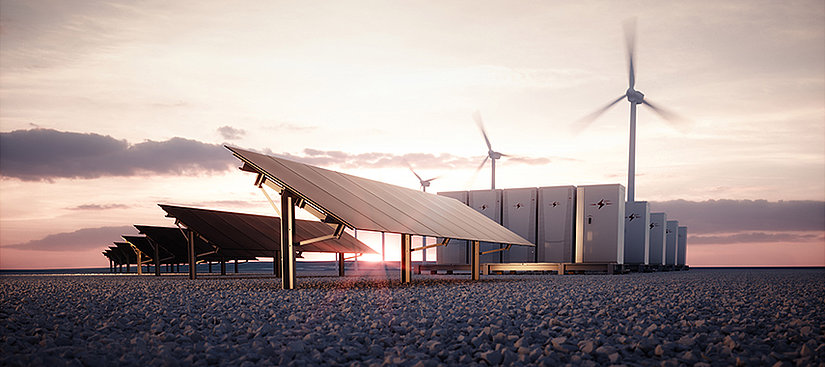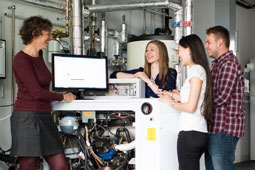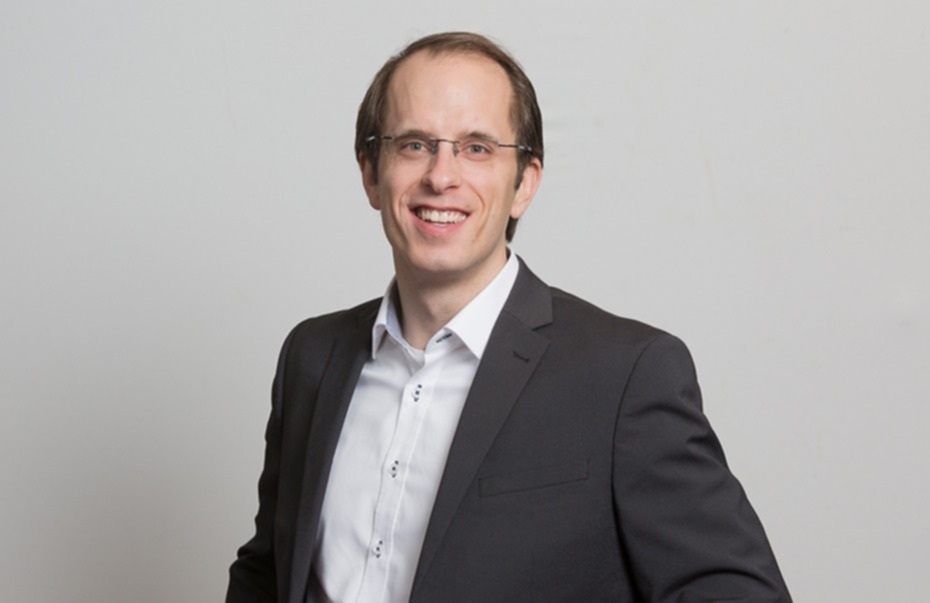Energy Systems Engineering and Management

SUSTAINABILITY AND RESPONSIBILITY FOR THE ENVIRONMENT
A climate-friendly and secure energy supply is one of the key issues of the future. In order to be able to competently help shape progress in this area, you will learn to design innovative energy systems for supplying the electricity, gas and heating markets. The focus is on the use of sustainable and resource-saving technology and its economical operation.

What you can expect
- Engineering, application-oriented degree program
- Modern campus
- Energy technology, energy economics
Without sustainable energy production, a livable existence on our planet is inconceivable in the long term. As industrial engineers for energy systems, you are shaping the climate transition.
What are you learning?
You will learn about systems that generate energy from wind and sun, how to store the energy generated in hydrogen tanks and batteries, how to distribute the energy through electricity and gas grids and how to use the energy through intelligent industrial and building technology. And you will learn how to realize all of this under
aspects.
You will be successful here if you:
- want to campaign for climate protection
- find renewable energies interesting
- enjoy technology and math
- think about the economic aspects of the energy transition.

Programme content
- Engineering mathematics, fundamentals of physics
- Energy generation process
- Examination regulations, module handbook & study plan
In the Industrial Engineering - Energy Systems course, lecturers impart practical knowledge about conventional and renewable energy generation and familiarize students with intelligent energy distribution and energy use systems. Economics and law are also integral components. In addition to the necessary specialist knowledge, they pass on their comprehensive knowledge; technical English and presentation techniques are also taught.
- Processes and methods of conventional and renewable energy generation (e.g. wind, photovoltaics, biogas, tides)
- Energy transportation, transmission and distribution with existing infrastructure and new networks (e.g. electricity, gas, hydrogen)
- Energy conversion and storage as well as energy demand forecasts
- Energy efficiency: knowledge of the possibilities, design and evaluation of efficiency-enhancing measures in energy provision and use (e.g. process improvements, load management, building design)
- Design, construction and operation of energy systems under economic aspects
- Contract design, energy purchase and sale, warranty, liability, insurance against energy failure and system damage
- Project management, negotiation techniques, presentation techniques
- Foreign language
The content is divided between technology (55%), business (25%), law (10%) and other (10%).
What you need to bring along
- General or subject-specific higher education entrance qualification
- Alternatively: entrance qualification for universities of applied sciences or a qualification recognized as equivalent in the course of professional qualification
- No NC required!
- C1 language level in German or an equivalent is required.
* This programme is fully taught in German.
Application process
The application phase for the approval-free Bachelor’s degree programmes for the coming summer begins on 01. December 2025 and ends on 15. March 2026. Applications can only be submitted online via our application portal.
If you have any questions, please contact the application support team.
Information material (in German)
What the alumnis say
Alexander Barth founded his company SMARTWERK in January 2020 and supports the university's start-up service with his expertise. From 2010 to 2016, he studied for a Bachelor's and Master's degree in Energy Systems Engineering and Management at Ruhr West University of Applied Sciences (HRW). He remains in contact with professors Dr. Marcus Rehm and Dr. Wolfgang Irrek for professional exchanges and possible collaborations.

